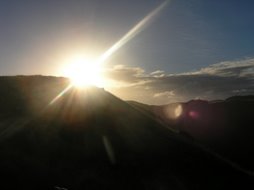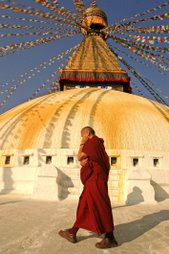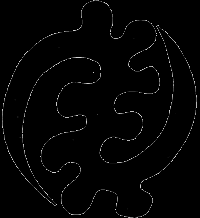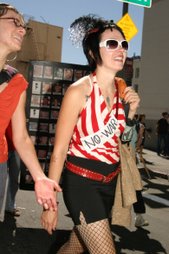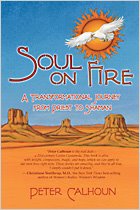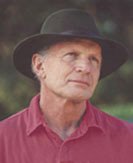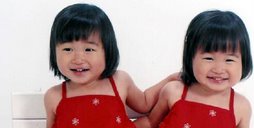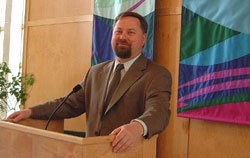Sunday, July 29, 2007
This chance
Of the human shadow, Carl Jung wrote: "Unfortunately there can be no doubt that man is, on the whole, less good than he imagines himself or wants to be. Everyone carries a shadow, and the less it is embodied in the individual's conscious life, the blacker and denser it is. If an inferiority is conscious, one always has a chance to correct it. Furthermore, it is constantly in contact with other interests, so that it is continually subjected to modifications. But if it is repressed and isolated from consciousness, it never gets corrected."
Ignorance of the shadow gives it power because once it comes to our awareness we begin to face it. Its power disappears gradually.
As I talk to close friends and family about it, I was surprised to know the number of people who have friends and relatives who have chosen this way to leave the world. In fact one of my very dear friends told me she had attempted suicide so many years ago.
A companion on the path wrote to me: "Suicide leaves everyone guilty of neglect… And beyond the guilt, I think we all recognize in our subconscious the extreme wish to "get out and do it now". It is focusing on the primal instinct of survival that blocks the human process of exploring suicide."
I feel blessed to be surrounded by friends with different experiences and who offer me such insights at times like this. I don't feel guilt about my colleague's decision to take her life. I feel a terrible sense of loss and waste. And as I reflect on this loss, I remember the words of Yun-Men Wen-Yen a Chinese Zen master who lived more than a thousand years ago.
"Life is precious; if you miss this chance, it may take a billion eons before you receive a human body again. If even a worldly man like Confucius said, "He who realizes the Tao in the morning can die content in the evening,"...Please do your best, and take good care of yourself."
Saturday, July 28, 2007
Redeeming Takemoto
Danny Takemoto forgot his 11-month-old son in a Honda Odyssey minivan and went to work for more than five hours in Concord. The temperature exceeded 80 degrees. The day care called the baby's mother to report her son’s absence. When she called the husband at a little before 4 pm, he rushed to the minivan. He found the child strapped in his seat, dead.
Takemoto, who was sent to Contra Costa County Jail in Martinez, worked for a Siemens AG division.
We don’t know what caused Takemoto to forget his son in his car. Might this be stress related?
In 1992, a United Nations Report labeled job stress "The 20th Century Disease" and in 1996, the World Health Organization said it had become a "World Wide Epidemic."
The American Institute of Stress reports that “In California, the number of Workers' compensation claims for mental stress increased by almost 700 percent over eight years and ninety percent were successful with an average award of $15,000 compared to a national average of $3,420”
The National Institute of Occupational Safety and Health relates the experience of David in a manufacturing plant. He speaks for many American workers when he says: "Since the reorganization, nobody feels safe. It used to be that as long as you did your work, you had a job. That's not for sure anymore. They expect the same production rates even though two guys are now doing the work of three. We're so backed up I'm working twelve-hour shifts six days a week. I swear I hear those machines humming in my sleep. Guys are calling in sick just to get a break."
Northwestern National Life survey reports that 40 percent of workers say their job is “very or extremely stressful.”
The tendency to blame Takemoto for his carelessness is high. Empathisizing with Takemoto should reveal the horror he is going through. How is he facing his wife? How is he going to ever forgive himself?
And when we look at this event in its wider context, might this be the visible effects of what organizations are doing to the psyche of their employees?
In this specific case, I wonder what Siemens offering daycare to its employees will do to reduce stress for their workers? It is ironic that such a tragedy should happen on Siemens campus because the company is noted for its life-saving products.
Management should find out how much stress its employees are now experiencing. Many other Siemens employees may be silent victims of the effects of the same stressful workplace: reorganizations, meeting deadlines, and profitability. This should be a reminder that the geese that lay the golden eggs should be adequately taken care of. Takemoto’s innocent child's death will not have been in vain.
The news source
National Institute for Occupational Safety and Health
AIS on Job Stress
Friday, July 27, 2007
Suicide
I wrote a joint paper with her in the winter of 2005 when we took the last UU Polity course that Peter Raible taught.
I remember her forthrightness, her humor, her heart for the poor. She volunteered at Tent City on several occasions. She participated in her church where she touched many lives.
She was a single mother of a 12-year-old boy. I remember she showed me her son's picture and told me how much she loved him.
I was at the grieving ceremony on Thursday night at the Woodinville UU church where I lighted a candle for her.
I am sad that she chose that final and absolute way to leave this world. I hope that her death will not be in vain. That through her death we will go deeper in our understanding of what it is to be there for one another, what it is to be a true community, in a suicide economy.
Sunday, July 22, 2007
The Eagle/chicken
All his life the eagle did what the backyard chickens did, thinking he was a backyard chicken. He scratched the earth for worms and insects. He clucked and cackled. And he thrashed her wings and flew only a few feet into the air.
Years passed and the eagle/chicken grew older. One day he noticed a magnificent bird far above him in the cloudless sky. It glided in graceful majesty among the powerful wind currents, with scarcely a beat of his strong golden wings.
The eagle/chicken looked up in awe. "Who's that?" he asked.
"That's the eagle, the most magnificent of all the birds," said one of the backyard chickens. "The eagle belongs to the sky. We belong to the earth—we're chickens."
Then the eagle/chicken became surprised. “How did I become an earth-bound bird?” he asked. He looked at himself for the first time and discovered that he looked different from the chickens. He saw that he had stronger claws and a larger spread of wings than the chickens in the farm.
He desired intensely to fly like the eagle, magnificent above in the sky. But he was frightened.
“Look, I am used to scratching the earth for worms and insects. Where will I find the worms and insects to feed myself?" he asked himself. He was immensely terrified at the prospect of being free and flying into the unknown alone. Then again, he thought about his previous experience. He could fly only two or three feet into the air. “I can't fly like this eagle in the sky,” he said in despair to himself.
One day, the eagle/chicken noticed that he could fly a little faster than the chickens in the farmyard. He hurried to a short tree nearby, steeled himself and tried to fly. He flew about ten feet. He discovered that he enjoyed staying in the air, even if it was only a few seconds longer. Something within the eagle/chicken propelled him in the air. Unfortunately, he got tired too soon and fell down to the ground.
The chicken in the farm saw him. "We saw you fly. You looked like the magnificent eagle we saw the other day. Sooner or later, you are going to fly away into the deep blue sky, away from us," the chickens said. The eagle/chicken remained silent, not knowing what to say about such an unexpected comment. Encouraged, he went back a few days later, and while he tried flying again, he saw a wild eagle who took him in his wings. The wild eagle taught eagle/chicken the ways of eagles. Eagle/chicken learned to fly like all eagles do, hunt mice in the forest and fish in the river. After this encounter, eagle/chicken perched on the tallest tree, with a gentle wind blowing over him. He pondered how, as an earth-bound chicken in the farmyard, his life was incomplete and his potential was unrealized. "I am glad I discovered who I really am,” he said with teary eyes to himself. “I am glad I followed my dream."
Saturday, July 14, 2007
On Inner Peace
Ananse was in his mid-thirties. He had a wife and two children. He had worked his father’s farm. No matter how hard he worked, he remained in debt. He decided to end his financial troubles. He traveled to a far away village to consult a medicine man.
The medicine man asked Ananse for the name of a dear family member. Ananse gave him his wife’s name. The medicine man performed a ritual and told Ananse that when he returned home, money would be in his closet. He also told him that he should not weep for anyone who died when he was away.
When Ananse got home he discovered his wife was dead. His wife’s sudden death shocked and saddened him but he obeyed the medicine man. He did not weep for his wife. He discovered that his wife died on the same day and at the same time that the medicine man asked him for her name.
Ananse opened his closet. He found boxes of hundred dollar bills. Ananse became wealthy overnight. Ananse built many houses. He remarried. He became a respectable member in the society. But Ananse was not happy. Every night, as he closed his eyes to sleep, he would see his wife, weeping, pleading to be set free.
Ananse could not drive his wife’s spirit away. Gradually, the wise men and women in the village found out what Ananse had done. They did not banish him. They allowed him to stay in the town but no one had any dealings with him. Although Ananse had all the money he wanted, he lost his relationship with his family and the community. He did not have peace of mind.
Many of us are like Ananse making the choice unknowingly between what the world promises us and our peace of mind. If you knew you could be the richest person in the world and lose your friends and family and your peace of mind, what would you do? And if you knew you could be the most famous person and most powerful individual but would lose your family and friends and your sanity what would you do?
Peace springs within us in a well that does not dry. Access to that peace is independent of what happens to us from the outside world. Our spiritual Elders have told us about a priceless diamond within us that we must all mine. They have reminded us over and over again that we should desire this peace within us above everything else. For some this peace within is synonymous to the presence of God and to the Kingdom of God.
I leave you with the words of Joel S. Goldsmith as he describes the process of obtaining this inner peace. As you meditate on these words, you may substitute God with the word peace. See what happens when you spend some time in this frame of mind. Shalom!
“If I desire God with all my heart and with all my soul and with all my mind, do I have room left to desire anything else and is there anything for me to desire after I have given my whole desire to God? I desire only God - to know You rightly - to live consciously in Your presence. This is my desire and all other desires I surrender to You. No longer do I have any desire but to know You rightly. Ambition? What ambition is there? What is there that I could be ambitious for after I have known God? Is there something in the world of greater value than God? Is there something of greater benefit than God? No. No. Knowing God, having God, I can have no further ambition, and I can surrender my ambition unto You. Hope, desire, ambition, fear. All these I surrender. And now, there is nothing left in the external world for me to be attached to.”
For a complete text of this meditation visit: http://www.beyondprayerandmeditation.com/bd010a2.htm
Friday, July 13, 2007
Compassion II
I am you and you are That.
I am you receiving the medal in Australia. I am you staying home to take care of your new born baby angel. I am you in Stuttgart, and Brussels, and in Paris. I am you as you savor the wonders of the world.
I am in your buds tasting exotic foods and wines. I am you watching sunset on the Pacific and sunrise over Kilimanjaro. I am you watching the birds in spring, watching the animals come to the river at dawn. I am you saying goodbye to your hosts in Kenya and Peru and China.
I am you proud of your daughter's new job, new creation, new home, new husband. I am you smelling the flowers in the Bellevue and Butchart gardens and the garden cities of the world.
I am in you listening to the summer music on the beaches and parks. I am you swimming with the dolphins in Kona in Hawaii.
I am you sobbing at night, cursing sunrise.
I am you planning to take away your life. I am you ashamed of your body, ashamed of your life, guilty that your grand daughter has been molested. That your son is in prison. I am you unappreciated at work, at church and at home. I am you watching your husband die slowly. I am you mourning mother’s death. I am you afraid of the next attack.
I am you lost in the forest of life without a path to come back home.
I am you.
I am with you in the joy.
I am with you in the despair.
You are not alone.
I am you and you are that.
Thursday, July 12, 2007
Only God

Prayer of the 246 million child laborers,
250,000 infected with HIV/AIDS every month,
and 300,000 child soldiers
Only You can heal
The wounds in our hearts
Only You can hear
The cry of our spirit
Only You can breatheLife into the dead bones
Only You can set us free
Only You can sustain our world
Bringing together all people
Into one peaceful family
Only You, God, Can
It is in your name,
El Elyon,*
We trust.
Kwami E. Nyamidie,
Seattle, July 12, 2006
*El Elyon is Hebrew for Most High
Monday, July 9, 2007
Glimpses of a New Age
Devoid of lust shall float weightless,
Man's body, flying falcons in the sky.
Visible to all like cloths men wear,
Naked intentions
Secret thoughts.
In quest of the earth's survival shall be:
Dissolve the South and North.
Poverty-stricken lands become royal estates
A mighty sun rises
In a land now oppressed,
In a land once deemed dark,
Uncivilized.
The Bhagavad-Gita in Christian temples shall be read,
The Bible in mosques with zest displayed,
Sikhs and Hindus shall live in peace;
Shall be enemies Jews no more of any race.
Of murderous crimes, deadly diseases
The earth shall be wiped clean.
Shall be keepers of the poor the rich
Divergent ideologies shall reconcile;
Of their union shall be born a maiden;
The mother of new conceptions of reality.
Terrorist threats shall there be no more
Tyrannical thrones shall there be no more
Injustice, inequality and poverty no more
When man's body shall float, flying falcons
In the sky, weightless, devoid of hatred
Devoid of lust.
Kwami Nyamidie
Sunday, July 8, 2007
With love to Astrid Ganz
 Love for women has inspired great works of art, music and literature. Yoko Ono influenced John Lennon's music; Hester Thrale's letters inspired Samuel Johnson's writing; the Russian-born psychotherapist Lou Andreas-Salomé enthralled Rainer Maria Rilke, Friedrich Wilhelm Nietzsche, and Sigmund Freud. Ludwig van Beethoven dedicated the Moonlight Sonata to his pupil, the 17-year-old Countess Giulietta Guicciardi. Charlotte Buff inspired Goethe’s The Sorrows of Young Werther and Beatrice Portinari was an inspiration for Dante Alighieri’s Divine Comedy. Romantic love has served as a catalyst for creativity.
Love for women has inspired great works of art, music and literature. Yoko Ono influenced John Lennon's music; Hester Thrale's letters inspired Samuel Johnson's writing; the Russian-born psychotherapist Lou Andreas-Salomé enthralled Rainer Maria Rilke, Friedrich Wilhelm Nietzsche, and Sigmund Freud. Ludwig van Beethoven dedicated the Moonlight Sonata to his pupil, the 17-year-old Countess Giulietta Guicciardi. Charlotte Buff inspired Goethe’s The Sorrows of Young Werther and Beatrice Portinari was an inspiration for Dante Alighieri’s Divine Comedy. Romantic love has served as a catalyst for creativity.Like the women who have inspired great works of the past, an American woman, Astrid Ganz, is the inspiration for Soul On Fire , by Snow Eagle (aka Peter Calhoun). This is a collection of stories about the spiritual transformation of an Episcopalian Priest turned shaman.
“I dedicate this book to Astrid Ganz, my earthly partner and twin flame. No matter how many people you touch with your joy, laughter, and healing hands, no one will ever be touched more deeply than I. With all the miracles in my life, none can compare with how you stepped out of my dreamtime into my waking life to love and restore me.”
Snow Eagle was the ordained minister of St Jude’s Episcopalian church in Alabama for ten years, until the spring of 1968 when he left the ministry because he wanted to be true to himself.
“I would have been walking a paradox if I had remained in the church,” writes Snow Eagle. “My beliefs had changed so radically that I could not, in good faith, continue teaching the catechism, creeds, and doctrines that I had vowed to uphold at the time of my ordination.”
Soul on Fire is the unbelievable but true story of Snow Eagle’s thirty year quest as a shaman. Prepare to suspend disbelief as you read miraculous story to mysterious account of the author’s experiences: from making sticks spontaneously combust to making rain fall after a long spell of drought; from communicating with bees and asking them to leave a house they were taking over to having dreams that materialized in the physical world.
Snow Eagle had a recurrent dream about a woman. One day at a workshop he met a woman who looked exactly like the person he had been seeing in his dreams. “Twin Flame” tells the story of their coming together. Astrid Ganz entered his life when Snow Eagle’s health was failing. Astrid brought him hope, love and healing.
Soul on Fire is a story of the transformation of consciousness through the shamanic vision quest. It is the story of the magical world we live in. And it is the story of one man’s search for and discovery of true love.
To read more about Astrid: http://www.petercalhoun.com/AboutAstrid.htm
To get your own copy of Soul on Fire: http://www.petercalhoun.com/index.htm
Saturday, July 7, 2007
The Fearless Life

Jan, who turned fifty that summer and had endured three breast cancer scares in her early thirties and forties, was afraid of an early death.
This is understandable. In 2003, the U.S. Cancer Statistics Working Group reported that one out of every four women diagnosed with breast cancer dies.
The following morning when this mother of two teenagers went to see her radiologist at a Jamaica Plain hospital, in Massachusetts, she noticed a change.
"I really was not afraid today. I couldn't get over it. After the films were taken and then the waiting began, I watched myself sit comfortably in the waiting room, reading my magazine, paying attention to what it said, instead of how it always was in the past, looking at the pages but not really seeing them."
When Fear Falls Away is a "testimony to a life transformed – an ordinary, fully suffering life transformed." It is about a middle class American woman’s victory over her worries about children, guilt, others' opinions, health, money, and fear of death.
There's so much suffering in our world. Even those who appear to have everything going for them are hurting deep within. The big cars, mansions on beaches, and the latest electronic gadgets do not in themselves satisfy our deep yearning for inner peace. When Fear Falls Away tells of the ocean of joy that is possible for all of us when we turn within to the inner consciousness. Material joy is like a drop in that vast expanse of deep peace.
Theravada Buddhism teaches that "enlightenment consists of the complete eradication of craving and attachment." In Zen Buddhism, it comes through emptying of the mind. In Western Christian literature, enlightenment is union with God. In Orthodox Christianity, it is divinization, or the process of becoming God.
Many doors lead to enlightenment's interior castle and include various forms of spiritual practice: meditation, devotion, and prayer. Mathematical or philosophical abstraction and being in the presence of enlightened individuals are other doorways. Enlightenment can also happen spontaneously.
These experiences are ineffable, difficult to express in prosaic terms. In Western Culture the enlightened individual can be misdiagnosed as mad if the individual experiencing this breakthrough in consciousness is not sophisticated enough to check himself or herself. At a diner while she was having breakfast with Peter, her significant other, we see Jan struggling to control her overwhelming urge to go out to tell everyone eating: "Do you know how lucky you are to be alive?"
Enlightenment is the most sublime change any individual can experience.
"The world has not changed. It is the looker who has changed. But I keep having to hit myself upside the head to believe the world is its same self. I cannot believe it. It's like I want to say, What? It's been this way all along? You mean, I could have lived my whole life this way, spared myself all that pointless anguish?"
I have borrowed a copy of When Fear Falls Away from the local library for my significant other who is reading it. I have bought two copies: There are some books you skim and forget. There are some books you read to remember. And there are some books you study and keep. For me, Jan Frazier’s book is a book I will read and reread, marking it, making notes, getting clues and tracking down all the influences that have prepared Jan for this most wonderful of human experiences.
